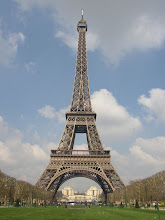After resisting multilateral pressure to get more players involved in the Sri Lankan peace process for over two
years, India seriously considered “crossing the Rubicon” in October 2005, the last days of Chandrika Kumaratunga's presidency. But it beat a quick retreat shortly after Mahinda Rajapaksa was elected to power in November, U.S. diplomatic cables accessed by The Hindu through WikiLeaks reveal. According to one cable sent by the U.S. Embassy in New Delhi on October 14, 2005 Anupam Ray, Deputy Secretary in the Ministry of External Affairs, told Embassy officials in New Delhi that “the peace process has deteriorated, LTTE leader Prabhakaran is more unpredictable than ever, and Norway has outlived its utility”. Thus, the “time has come” for India to reengage, Ambassador Robert Blake quotes Mr. Ray as saying.
While India would prefer to wait until there is a “Sinhalese consensus about the outline of a solution,” the Government of India “can't wait forever because Prabhakaran wants Tamil Eelam in his lifetime.” Mr. Ray was clear that India did not want to play mediator or facilitator and would not join officially the ‘Co-chairs', as the grouping of Norway, Japan, U.S. and the European Union, who led to the 2003 conference of donors to Sri Lanka in Tokyo, came to be known. However, it would take a more active role in the donors' group.
Just days after Mr. Rajapaksa's victory, MEA Joint Secretary Mohan Kumar told U.S. Embassy officials that “in the light of the stalled peace process and the potential for further decline,” the Government of India “prefers to be hands off,” but “can't keep quiet” any more. This was in a cable sent on November 23, 2005 . “India is crossing the Rubicon,” he said, but “still looking for the best way to protect its interests in [the] Sri Lankan peace process.” According to the Ambassador, Mr. Kumar “attributed this decision directly to Prime Minister [Manmohan] Singh and Foreign Secretary [Shyam] Saran.”
While President Rajapaksa was eager to review the 2002 ceasefire agreement with the Liberation Tigers of Tamil Eelam (LTTE), dump Norway as peace facilitator and rope in India, India, according to Mr. Kumar, was preparing to convey a message on his expected first visit in December 2005. This message was that he “should moderate his statements, keep the ceasefire going, bring Norway back into the process and work towards a Sinhalese consensus solution to the conflict.”
At the same time, the Norwegians had informed India that the LTTE would like India to play a facilitatory role, but the Government of India declined. Mr. Kumar “insisted that the GOI will never accept. If India facilitated, Prabhakaran would demand meetings and access in Chennai, forcing the GOI to lift the terrorist group's proscription. This would have the negative effect of giving the LTTE a foothold into Tamil Nadu to meet with mainstream parties and gather support in the south.”
However, as is widely known, Mr. Rajapaksa's maiden visit to India as President failed to achieve its objective of getting India seriously involved in the peace process. According to a cable sent on January 4, 2006, shortly after his December 27-30 visit, Indian officials were telling U.S. diplomats in January 2006 that as instances of ceasefire violations rose, India had “toyed with the idea that its participation could help prevent a breakdown in the peace process.” But it had told Foreign Minister Mangala Samaraweera late in November that India would not take a more active role without a Sinhalese consensus.
Mr. Blake said MEA officials had indicated the Prime Minister had made the “decision to rebuff Rajapaksa's call for involvement, influenced by domestic political constraints.”
This was an apparent reference to protests in Tamil Nadu against the President's visit. He referred to an escalation in LTTE attacks and commenting that it “complicated this decision process and likely contributed to an Indian decision to let the situation ripen.”
The Ambassador said National Security Adviser M.K. Narayanan felt that “now is not the time to be dragged into Sri Lanka's travails.”







0 comments:
Post a Comment